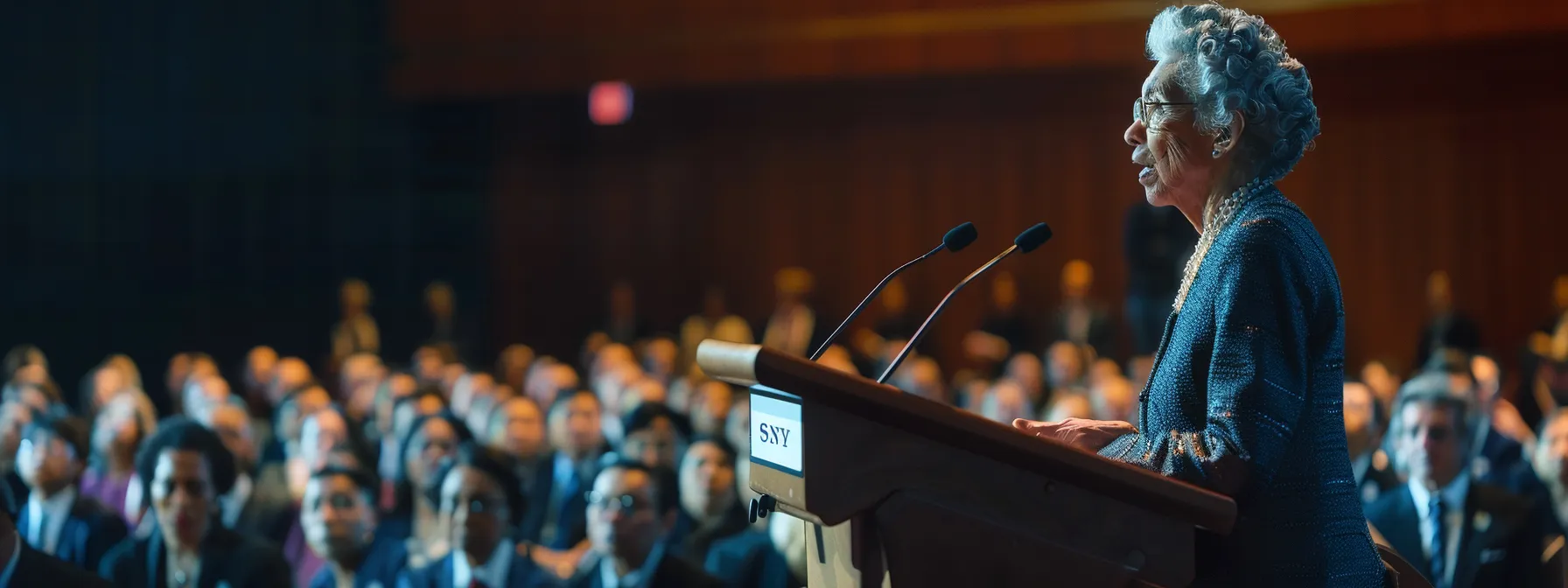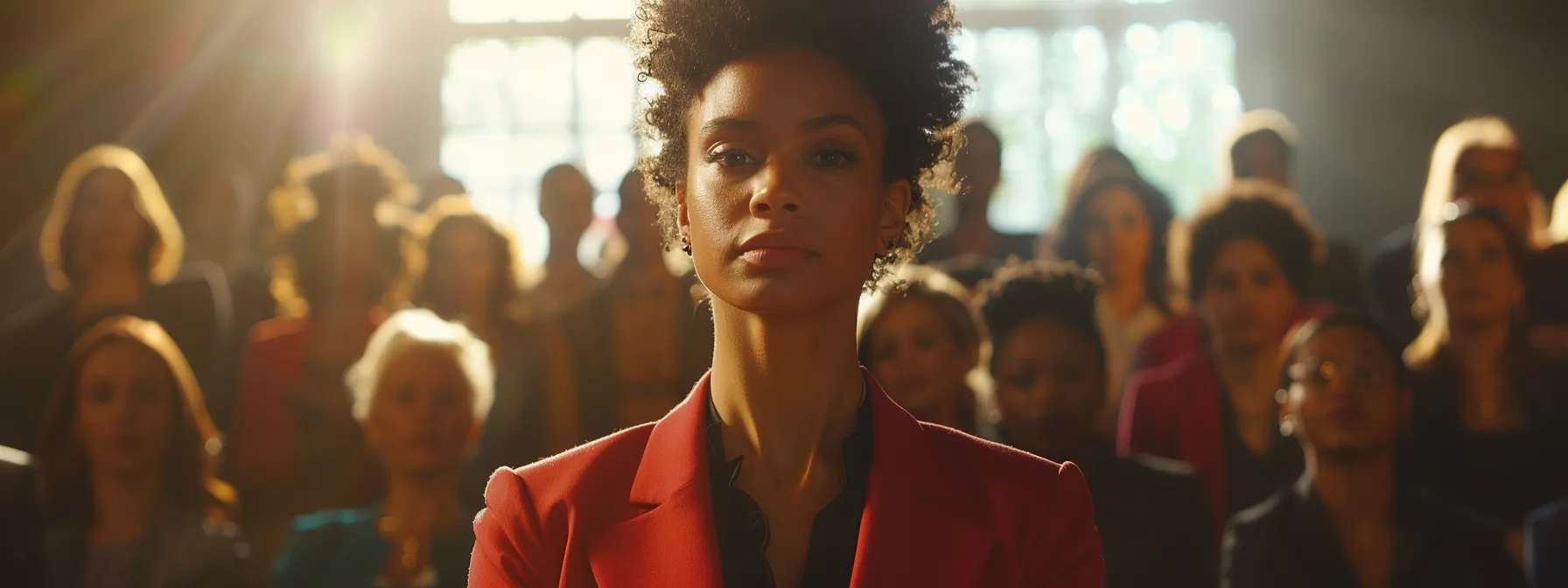Disclaimer: We sometimes use affiliate links in our content. For more information, visit our Disclaimer Page.
Eleanor Roosevelt’s influence on global human rights initiatives is often overlooked, yet her contributions are profound. As a leader of the United Nations Human Rights Commission and a key figure in the drafting of the Universal Declaration of Human Rights, her work laid the groundwork for future human rights advocacy. This post will explore her early influences, her promotion of women’s rights through organizations like Un Women and the League of Women Voters, and her lasting legacy. By understanding Roosevelt’s role, readers will gain insights into the foundations of current human rights efforts and how her vision continues to shape advocacy today.
Key Takeaways
- Eleanor Roosevelt‘s childhood experiences shaped her commitment to equality and social justice
- Her role as Chairperson of the UN Human Rights Commission was pivotal in global human rights advocacy
- Roosevelt’s focus on inclusive language in human rights documents promoted equality for marginalized communities
- She actively mentored future leaders, influencing modern human rights discussions and legislation
- Eleanor’s legacy continues to inspire contemporary movements for gender equality and social justice
Early Influences on Eleanor Roosevelt‘s Commitment to Human Rights

Childhood experiences significantly shaped Eleanor Roosevelt‘s worldview, instilling values that emphasized equality and justice. The impact of World War I further enhanced her humanitarian perspective, urging her to address global issues. Additionally, her engagement with social reform movements deepened her commitment to human rights, setting the stage for her influential role alongside other famous leaders in initiatives like the European Court of Human Rights and her recognition in the Nobel Peace Prize discussions.
Childhood Experiences Shaping Her Worldview
Eleanor Roosevelt’s upbringing played a crucial role in shaping her commitment to activism and human rights. Growing up in a politically active family, she was exposed to discussions about famous leaders, equality, violence, and the importance of social justice. These experiences instilled a sense of responsibility in her to combat totalitarianism and advocate for the rights of marginalized groups, setting the foundation for her later work with various organizations dedicated to these causes.
As a child, Eleanor faced personal challenges, including the loss of her parents, which contributed to her empathetic outlook toward others. This early exposure to hardship propelled her desire to fight against oppression and injustice. Her involvement in social reform movements during her formative years paved the way for her influential role in the drafting of the Universal Declaration of Human Rights, highlighting her commitment to creating a charter that promoted global equality and peace.
Impact of World War I on Her Humanitarian Perspective
World War I had a profound impact on Eleanor Roosevelt’s humanitarian perspective, instilling in her a sense of urgency about global issues. The war highlighted the need for international cooperation, ultimately contributing to her commitment to supporting organizations like the United Nations Secretariat. Her experiences during this tumultuous time encouraged her to advocate for human rights, including initiatives like equal pay for equal work, as she recognized the deep injustices that many faced in the aftermath of conflict.
This period of upheaval also fueled her courage to take on leadership roles, demonstrating her dedication to addressing systemic inequalities. Roosevelt’s involvement with groups such as the NAACP and her later work with the Office of the United Nations High Commissioner for Human Rights underscore her lifelong commitment to promoting social justice. The lessons learned during World War I shaped her vision for a more equitable world, influencing her role in the establishment of global human rights initiatives.
Engagement With Social Reform Movements
Eleanor Roosevelt‘s engagement with social reform movements was instrumental in shaping her dedication to human rights. As a prominent figure, she often collaborated with organizations advocating for equality, including those fighting for the rights of Jews during a time of increasing anti-Semitism. Her role as chairperson of various committees helped raise awareness and mobilize efforts to combat discrimination, emphasizing the importance of standing up for marginalized communities.
Eleanor Roosevelt‘s early experiences shaped her fierce dedication to justice. Now, she stood ready to lead the United Nations Human Rights Commission, a role that would challenge and define her legacy.
Leading the United Nations Human Rights Commission

Eleanor Roosevelt, appointed as Chairperson of the United Nations Human Rights Commission, faced significant initial challenges in her quest to establish a global framework for human rights. Collaborating with international delegates, she navigated the complex political tensions of the Cold War while advocating for essential rights like the “right to rest and leisure.” Her focus on building consensus among nations, including discussions around marriage and sovereignty, laid the groundwork for pivotal human rights initiatives.
Appointment as Chairperson and Initial Challenges
In 1948, Eleanor Roosevelt was appointed as the Chairperson of the United Nations Human Rights Commission, a role that positioned her at the forefront of global human rights advocacy. Her commitment to the principle that “all men are created equal” faced immediate challenges, as she worked to navigate diverse political perspectives during the Cold War. With a focus on creating an inclusive framework, Roosevelt aimed to establish treaties that would address fundamental rights, including the right to social security, which she considered essential for societal stability.
Her leadership was pivotal during the preparation for the World Conference on Human Rights, where she championed the need for a universal declaration emphasizing equality and justice. Eleanor faced resistance from various nations regarding the scope and authority of human rights treaties, yet her dedication to consensus-building helped overcome these obstacles. The groundwork laid during her tenure not only influenced future discussions on human rights but also showcased the urgent need for collective action across societies:
- Eleanor Roosevelt appointed as Chairperson in 1948.
- Faced political challenges during the Cold War.
- Advocated for treaties focusing on rights such as social security.
- Led efforts for the World Conference on Human Rights.
- Emphasized the principle that “all men are created equal.”
- Strived for international consensus amid resistance.
Collaboration With International Delegates
Collaboration among international delegates was essential for Eleanor Roosevelt as she led the United Nations Human Rights Commission. Her ability to engage with representatives from various countries reflected her profound faith in dialogue as a tool for change. Roosevelt’s discussions often included critical topics like the Social Security Act and freedom of religion, emphasizing the interconnectedness of these rights and their importance in fostering global stability.
Through her collaborative efforts, Roosevelt demonstrated how diplomacy could bridge political divides. Her work laid the foundation for agreements that promoted not only basic human rights but also encouraged nations to support initiatives that advance social welfare. Engaging with delegates, including insights from figures such as Marion Dickerman, bolstered her arguments and helped her advocate more effectively for a comprehensive human rights framework that resonated with a diverse global audience.
Navigating political tensions during the Cold War was a significant aspect of Eleanor Roosevelt‘s leadership as Chairperson of the United Nations Human Rights Commission. She understood that promoting human rights required not only addressing issues like genocide and discrimination but also gaining consensus among nations with differing ideologies. Roosevelt’s commitment to “freedom from fear” reflected her belief that all individuals, regardless of their citizenship or disability, should be protected from oppression.
To address these tensions, Roosevelt employed research and diplomacy, engaging delegates from various countries to discuss human rights initiatives. Her ability to emphasize common values helped bridge divides, allowing for the development of frameworks that could address the needs of diverse populations. By highlighting the importance of collaboration, she paved the way for substantive discussions on protecting the rights of vulnerable groups worldwide, laying a foundation for ongoing global human rights efforts.
Strategies for Building Consensus Among Nations
Eleanor Roosevelt employed various strategies to build consensus among nations while chairing the United Nations Human Rights Commission. Understanding that different countries had varying political and cultural contexts, she focused on fostering dialogue that addressed common concerns related to human rights. By leveraging her skills as a lawyer, she articulated arguments that resonated with diverse international delegates, emphasizing the importance of rights that aligned with the principles of justice established by the Permanent Court of International Justice.
Roosevelt also recognized the significance of collaboration with influential bodies, including the United States Senate, to create a supportive environment for human rights initiatives. By advocating for universal rights and presenting practical frameworks, she aimed to unite countries towards a shared vision for protecting individuals worldwide. This approach not only facilitated the drafting of pivotal documents but also ensured that discussions about human rights remained relevant and actionable across different political landscapes.
The challenge was great, but the drive to create lasting change was stronger. This led to a pivotal moment: the crafting of the Universal Declaration of Human Rights, a document that aimed to define freedom for all.
Crafting the Universal Declaration of Human Rights

Eleanor Roosevelt‘s contributions to the drafting of the Universal Declaration of Human Rights highlighted her commitment to promoting human dignity and equality worldwide. Key aspects include her advocacy for inclusive language that addressed freedoms such as employment and freedom of thought, her tenacity in overcoming opposition, and the declaration’s immediate global impact. The principles she helped establish influenced future agreements, including the International Covenant on Civil and Political Rights, and responded to the horrors of the Holocaust.
Key Contributions to the Drafting Process
Eleanor Roosevelt played a pivotal role in the drafting process of the Universal Declaration of Human Rights, emphasizing principles that sought to protect individuals from tyrants and oppressive regimes. Her work in the General Assembly was marked by a commitment to social justice, focusing on rights that addressed economic disparities, including fair income for all. Roosevelt’s insistence on including language that explicitly condemned slavery underscored the importance of safeguarding human dignity for every individual.
Advocacy for Inclusive Language and Universal Principles
Eleanor Roosevelt‘s advocacy for inclusive language in the Universal Declaration of Human Rights was crucial in promoting global concepts of racial equality and democracy. She understood that human rights must reflect the diverse experiences of people worldwide, ensuring that the declaration effectively addressed the concerns of marginalized communities. Her push for clear and inclusive phrasing aimed to establish a universal human rights framework that prioritized welfare and human dignity for all individuals.
During the drafting of the declaration, Roosevelt drew from discussions at pivotal events like the Dumbarton Oaks Conference. This conference emphasized the need for an international effort to uphold principles that safeguard human rights globally. By embracing a broad definition of rights, Eleanor Roosevelt laid the groundwork for a concept that recognized the interconnectedness of social, political, and economic issues, thereby creating a comprehensive approach to promoting human rights standards across nations:
- Eleanor Roosevelt‘s focus on inclusive language.
- Promotion of racial equality and democracy.
- Significance of the Dumbarton Oaks Conference.
- Recognition of the importance of welfare.
- Establishment of a universal human rights framework.
Overcoming Opposition and Securing Adoption
During the drafting process, Eleanor Roosevelt faced significant opposition from various nations regarding the Universal Declaration of Human Rights. The discussions often reflected the tensions arising from events like the Yalta Conference, where differing political ideologies became apparent. As a skilled diplomat, Roosevelt worked tirelessly to build consensus among delegates within the United Nations Economic and Social Council, seeking to address the concerns that emerged from these complex political dynamics.
Roosevelt’s committee was instrumental in shaping policies that aligned with universal human rights principles. By engaging in diplomatic dialogue and demonstrating a commitment to inclusivity, she was able to overcome resistance and secure the adoption of the declaration. Her efforts underscored the necessity for a unified approach to human rights, which ultimately contributed to the establishment of a framework that protects individuals regardless of their background.
The Declaration’s Immediate Global Impact
The immediate global impact of the Universal Declaration of Human Rights was profound, reflecting Eleanor Roosevelt‘s vision of equitable rights for all nations. Following its adoption in 1948, the declaration inspired countries grappling with the economic challenges of the Great Depression to rethink their approach to social policies. The principles outlined influenced various governments to establish programs aimed at improving the welfare of their citizens, such as the National Youth Administration, which focused on the opportunity for youth and employment in numerous countries.
The rights laid out in the Declaration sparked a flame. Now, that flame must be passed to the cause of women’s rights, urging the world to listen closely.
Promoting Women’s Rights on the International Stage

Eleanor Roosevelt‘s advocacy for women’s rights significantly shaped international human rights discussions. By championing the Convention on the Political Rights of Women, she worked to integrate gender equality into the framework of human rights. Partnerships with women’s organizations worldwide enhanced initiatives addressing women’s issues in post-war societies, further solidifying her role in promoting both negative and positive rights in Geneva and New York City. These efforts also contributed to her recognition with the United Nations Prize in the Field of Human Rights.
Efforts to Integrate Gender Equality Into Human Rights Discussions
Eleanor Roosevelt‘s efforts to integrate gender equality into the discussions surrounding the international bill of human rights were pivotal in shaping how women’s rights were recognized globally. She consistently advocated for the inclusion of feminist principles within human rights frameworks, emphasizing that equality must encompass all individuals, regardless of gender. By addressing issues such as the rights of women refugees affected by conflict and fascism, Roosevelt marked a significant shift in how gender issues were viewed in international law.
Through her work with the United Nations and the International Court of Justice, Roosevelt actively pushed for policies that supported women’s rights on the international stage. Her initiatives paved the way for future discussions focused on gender equality, illustrating the importance of recognizing women’s contributions and experiences in human rights dialogues. The commitment she demonstrated set a foundation for continued advocacy, ensuring that women’s rights remained a priority in global human rights initiatives:
Partnership With Women’s Organizations Worldwide
Eleanor Roosevelt‘s collaboration with women’s organizations worldwide demonstrated her commitment to advancing gender equality in the realm of human rights. Notably, her partnership with figures such as Lorena Hickok, a close advisor and journalist, played a pivotal role in amplifying women’s voices within the global discourse on human rights. This collaboration was instrumental in advocating for the ratification of international agreements aimed at protecting women’s rights, particularly in countries like Yugoslavia, where socio-political conflicts posed significant challenges for women.
Initiatives to Address Women’s Issues in Post-War Societies
In the aftermath of World War II, Eleanor Roosevelt championed initiatives aimed at addressing women’s issues in post-war societies by integrating these concerns into international law. Her work with the United Nations facilitated the development of policies that emphasized the importance of gender equality and protection of women’s rights under international human rights law. Roosevelt’s ability to raise public opinion around these issues led to increased awareness and action toward the specific needs of women affected by the war, encouraging governments to prioritize gender equality in their recovery efforts.
Furthermore, Roosevelt collaborated with influential figures such as Charles Malik, a Lebanese diplomat who served as the President of the United Nations General Assembly, to ensure women’s concerns were represented in critical discussions. Their partnership aimed to create momentum for international agreements that would solidify the rights of women globally. By fostering cooperation and advocating for strong representation in policy-making, Roosevelt played a pivotal role in shifting perspectives on gender issues, helping to establish a framework that addresses the unique challenges faced by women in a rebuilding world:
The push for women’s rights echoed beyond borders, igniting a fire for change. This momentum shaped the landscape of global human rights, setting the stage for initiatives that followed.
Influence on Subsequent Global Human Rights Initiatives

Eleanor Roosevelt‘s legacy extends beyond her initial contributions to human rights; it includes her role in mentoring future human rights leaders. Her influence inspired international legislation addressing discrimination, significantly impacting United Nations policies. Roosevelt’s advocacy for freedom of information underscores the ongoing relevance of her work, shaping a path for successors like Hillary Clinton to continue the essential discourse on human rights.
Mentoring Future Human Rights Leaders
Eleanor Roosevelt‘s dedication to human rights extended beyond her direct contributions; she actively mentored future leaders in the field. Through her involvement in initiatives like the Presidential Commission on the Status of Women, she demonstrated her commitment to fostering a new generation of advocates. Her guidance inspired many to challenge inequality, confront colonialism, and promote democratic values, leading to impactful contributions in various sectors, including the development of frameworks for the International Criminal Court.
Roosevelt’s mentorship was also apparent in her engagement with international discussions, notably at venues like Dar Constitution Hall, where she emphasized the importance of collaborative efforts among countries, including those in the Soviet Union. By sharing her knowledge and experience, she equipped emerging leaders with the skills necessary to navigate complex political landscapes and advance the human rights agenda globally. This approach not only elevated the discourse surrounding human rights but also encouraged sustainable action toward achieving social justice and equality.
Inspiring International Human Rights Legislation
Eleanor Roosevelt’s advocacy laid the groundwork for significant international human rights legislation that resonates today. As a member of the United Nations General Assembly, she championed the Universal Declaration of Human Rights, which was adopted at the Palais de Chaillot in 1948. Her emphasis on fundamental rights, including freedom of speech, influenced member states of the United Nations to recognize and protect individual liberties across diverse cultures and nations.
Long-Term Effects on United Nations Policies
The long-term effects of Eleanor Roosevelt‘s work on the United Nations policies are evident in the foundational documents and frameworks established after the adoption of the Universal Declaration of Human Rights. This declaration, which emphasized the importance of natural rights and legal rights, serves as a cornerstone for various international agreements and treaties. Roosevelt’s commitment to principles of equality and justice continues to resonate within the UN’s ongoing efforts, often referenced in discussions held at significant locations such as the Lincoln Memorial, symbolizing the enduring quest for civil rights and social justice.
Eleanor Roosevelt‘s efforts changed the course of human rights worldwide. Her impact continues to inspire many today, reminding us of the ongoing fight for justice and equality.
Enduring Legacy of Eleanor Roosevelt in Human Rights Advocacy

Eleanor Roosevelt‘s legacy in human rights advocacy is marked by global recognition and numerous honors that reflect her impact on the League of Nations and fundamental rights initiatives. Educational programs and institutions established in her name further reinforce her commitment to understanding human rights law. Her work continues to resonate, addressing ongoing challenges in today’s state of the union regarding human rights.
Recognition and Honors Received Globally
Eleanor Roosevelt received numerous accolades throughout her life, reflecting her significant contributions to human rights and social justice. She was instrumental in the adoption of the Universal Declaration of Human Rights, a pivotal moment acknowledged during various anniversaries that celebrate this foundational document. Honors such as the Human Rights Award presented by the National Woman’s Party emphasize her unwavering commitment to eradicating practices such as torture and advocating for equality.
Her legacy is also commemorated at the headquarters of the United Nations, where a statue of her stands as a testament to her role in shaping global human rights initiatives. Notably, her powerful collaboration with artists like Marian Anderson, who performed at significant events, further highlights her commitment to using her platform for social change. These recognitions serve not only to honor her past achievements but also inspire future generations to continue advocating for human rights worldwide:
Educational Programs and Institutions Established in Her Name
Several educational programs and institutions have been established in Eleanor Roosevelt‘s name, reflecting her commitment to human rights and social justice. The National Park Service honors her legacy through the Eleanor Roosevelt National Historic Site, which serves as a resource for visitors to learn about her impact during the Cold War and her work in advocating for African Americans and women’s rights. These programs aim to provide knowledge about civil rights and social justice, ensuring that her values continue to inspire future generations.
Additionally, universities and organizations across Latin America have integrated Eleanor Roosevelt‘s principles into their human rights curricula. Through collaborative efforts, these institutions promote the understanding of social justice and encourage students to engage in activism, focusing on the importance of equality for all, including marginalized groups such as African Americans. By fostering this educational environment, Roosevelt’s influence persists, guiding individuals as they navigate contemporary human rights challenges and advocate for systemic change.
Ongoing Relevance of Her Work in Today’s Human Rights Challenges
Eleanor Roosevelt‘s work continues to resonate in today’s human rights discussions, particularly in the context of the ongoing efforts of the Commission on Human Rights. Her advocacy for the right to an adequate standard of living laid the groundwork for contemporary debates about economic equality and social justice. As nations grapple with inequality, her emphasis on equal opportunity serves as a guiding principle for policies aimed at ensuring that all individuals can achieve their potential, regardless of their background.
Conclusion
Eleanor Roosevelt‘s pivotal role in shaping global human rights initiatives underscored her commitment to justice, equality, and human dignity. Through her leadership in the United Nations and her influential contributions to the Universal Declaration of Human Rights, she established frameworks that continue to guide contemporary human rights discourse. Roosevelt’s advocacy for marginalized communities and gender equality amplified the importance of inclusive rights protections on a global scale. Her enduring legacy inspires ongoing efforts to address human rights challenges and promotes a vision of equality that remains relevant today.





